The event brings together dozens of the world’s most prominent technology leaders taking place in Washington (USA) to discuss artificial intelligence (AI) management.
Coming out of a 3-hour hearing on AI, Elon Musk – the boss of a series of famous technology companies – succinctly summarized the risks of this technology: “There is a possibility – greater than zero – that AI will 𝓀𝒾𝓁𝓁 all of us. I think that possibility is low but not impossible. The consequences of misunderstanding AI are extremely dire,” he told reporters.
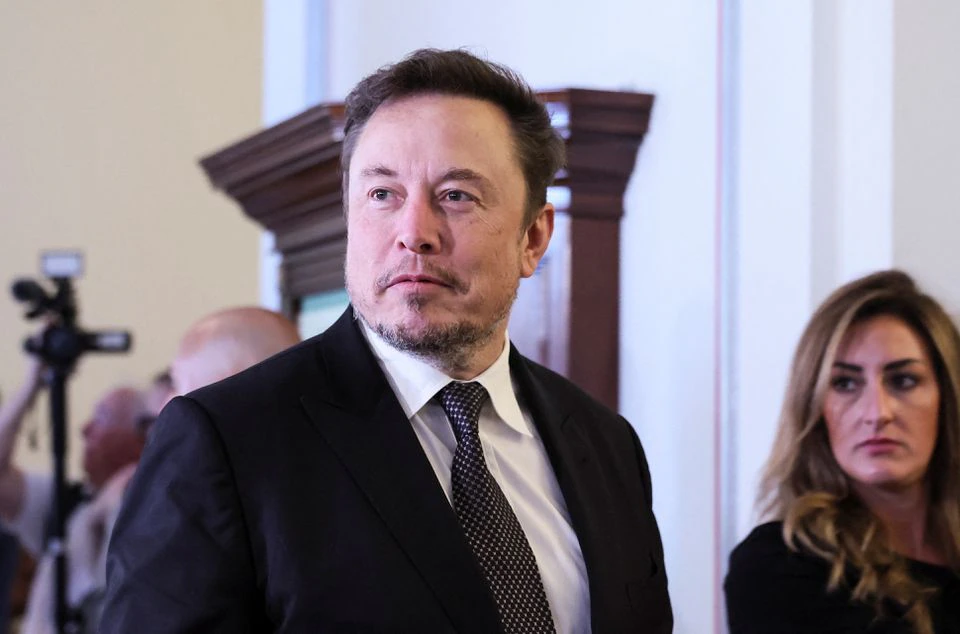
Elon Musk attended the meeting on September 13 in Washington, USA. (Photo: Reuters)
In addition, he said that the meeting “will go down in history for its importance to the future of civilization.”
The session, hosted by Senator Chuck Schumer, brought together high-profile tech CEOs, civil society leaders and more than 60 senators. The first of nine sessions aims to develop consensus as the Senate prepares to draft legislation to regulate the AI industry. Participants also included the CEOs of Meta, Google, OpenAI, Nvidia and IBM.
All attendees raised their hands – indicating “yes” – when asked whether the federal government should monitor AI, Mr. Schumer told reporters on the afternoon of September 13. But consensus on what that role should be and the specifics of the legislation remain elusive, according to attendees.
Benefits and risks
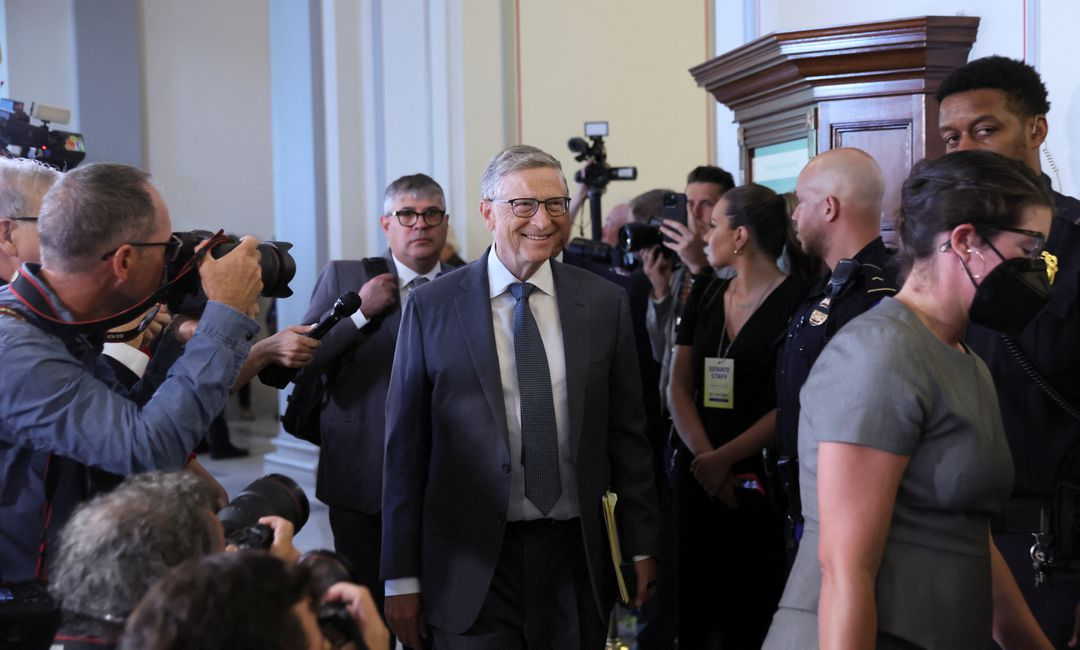
Billionaire Bill Gates appeared at the meeting. (Photo: Reuters)
Bill Gates spoke about AI’s potential for poverty, while an anonymous attendee called for tens of billions of dollars to be spent to unlock the benefits of AI, according to Schumer.
The challenge for Congress is to advance those benefits while minimizing the societal risks of AI, including the potential for technology-based discrimination, threats to national security, and even , as X owner Musk says, “risks civilization.”
Mr. Schumer said that maximizing benefits while minimizing harm is a difficult task.
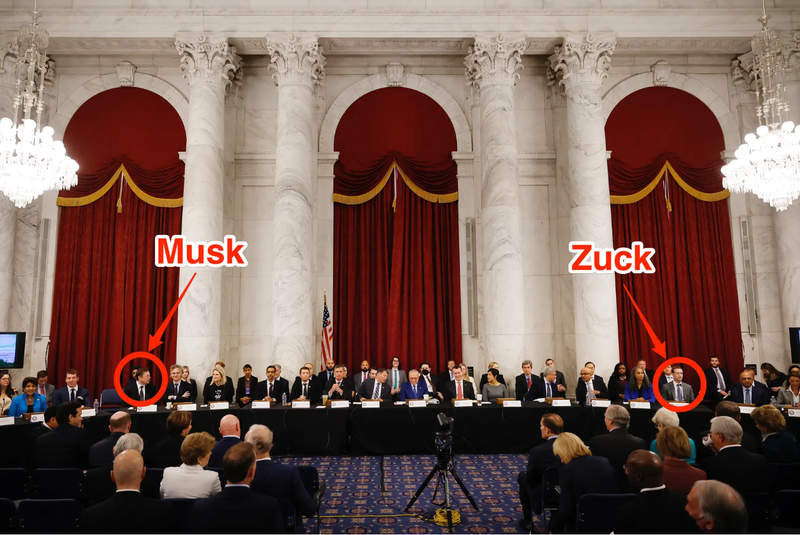
Senators heard a range of perspectives, with representatives from labor unions raising employment issues, and civil rights leaders emphasizing the need for a comprehensive legislative process that to give a voice to the least powerful in society.
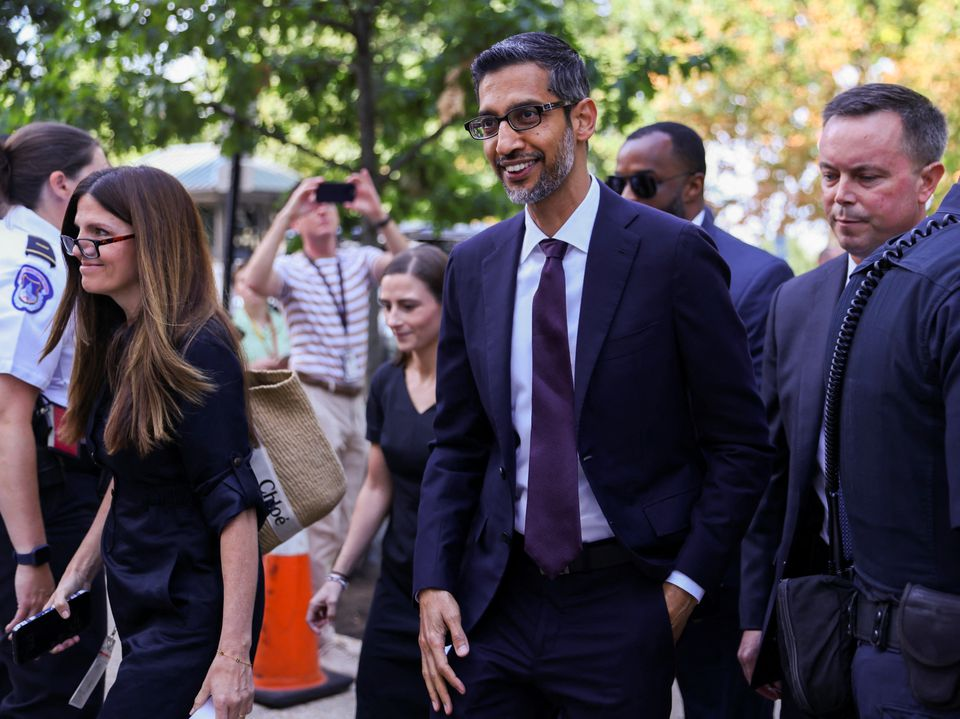
Google CEO Sundar Pichai (Photo: Reuters)
Most agree that AI cannot be left alone, said Washington Democratic Senator Maria Cantwell. Microsoft CEO Satya Nadella opined: “When it comes to AI, we shouldn’t think about autopilot. You need to have a companion.”
After the event, Musk told journalists he thought at some point there would be an independent agency to regulate AI.
The meeting of outstanding minds
Mr. Schumer noted this was an “unprecedented discussion in Congress.”
It shows the growing awareness among policymakers that artificial intelligence, and especially generative AI like ChatGPT, can disrupt business and everyday life in many ways, from increasing productivity trade to threaten jobs, national security and intellectual property.
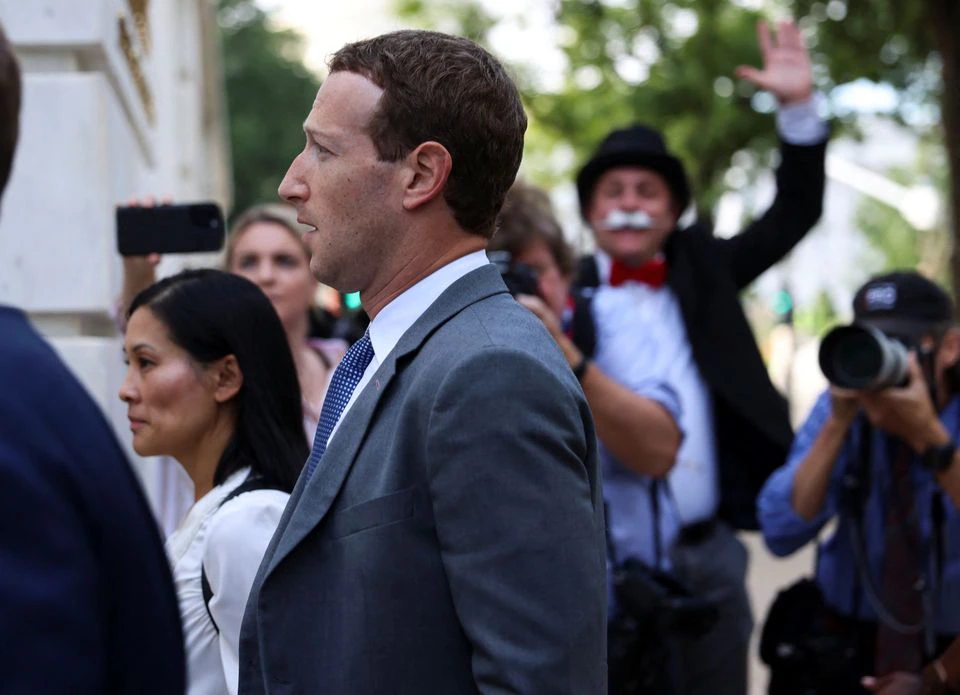
Meta CEO Mark Zuckerberg (Photo: Reuters)The VIP guests arrived shortly before 10 a.m., with Meta CEO Mark Zuckerberg pausing to chat with Nvidia CEO Jensen Huang outside the Kennedy Caucus Room of the Russell Senate office building. Google CEO Sundar Pichai was seen huddled with Delaware Democratic Senator Chris Coons, while X owner Musk waved to the crowd.
Inside, Musk sat in the back of the room across from Zuckerberg, in what may have been the first time the two men had shared a room since they began martial arts challenges a few months ago.
The session on Capitol Hill in Washington also gives the tech industry its most important opportunity yet to influence how lawmakers design the rules that could govern AI.
Several companies, including Google, IBM, Microsoft, and OpenAI, have offered their own in-depth proposals in white papers and blog posts describing layers of oversight, testing, and transparency.
IBM CEO Arvind Krishna argued during the meeting that US policy should regulate the risky use of AI, rather than just algorithms. “Regulation must take into account the context in which AI is deployed,” he said.
Call for management
Executives like OpenAI CEO Sam Altman previously surprised some senators by publicly calling for rules governing AI soon, which some lawmakers saw as a welcome contrast. welcome compared to the social media industry.
Civil society groups have voiced concerns about the possible dangers of AI, such as the risk that poorly trained algorithms could unintentionally discriminate against minorities or that they could copy Unauthorized copying of copyrighted works by writers and artists. Some authors have sued OpenAI, while others asked AI companies to pay in open letters.
News publishers such as CNN, The New York Times and Disney have blocked ChatGPT from using their content.
American Federation of Teachers President Randi Weingarten said America cannot make the same mistakes with AI as with social media. “We failed to act after the harmful effects of social media on 𝘤𝘩𝘪𝘭𝘥ren’s mental health became clear,” she said in a statement. “AI needs to complement, not replace, educators, and special care must be taken to prevent harm to students.”
Policy development
Earlier this summer, Mr. Schumer held three information sessions for senators to get up to speed on technology, including a confidential meeting with U.S. national security officials.
Tuesday’s meeting with tech executives and nonprofits marked the next phase of educating lawmakers on the issue before they begin developing proposals. policy export. In June, Senator Schumer emphasized the need for a careful, deliberate approach and acknowledged that “in many ways, we are starting from scratch.”
“AI is unlike anything Congress has dealt with before,” he said, noting that the topic is different from labor, health care or defense. “Experts aren’t even sure what questions policymakers should be asking.”
He added that the goal after holding more sessions is to draft legislation in “months, not years.”
A series of AI bills have appeared on Capitol Hill and seek to rein in the industry in various ways, but Schumer’s push represents a higher-level effort to coordinate the nation’s legislative agenda. meeting on this issue.
The new AI law could also serve as a potential backstop for the voluntary commitments some AI companies made to President Joe Biden’s administration earlier this year to ensure their AI models experience through testing before they are released to the public.
But even as lawmakers prepare, they are months, if not years, behind the European Union, which is expected to finalize sweeping AI legislation by the end of the year. . Laws could prohibit the use of AI for policy prediction and limit its use in other contexts.





